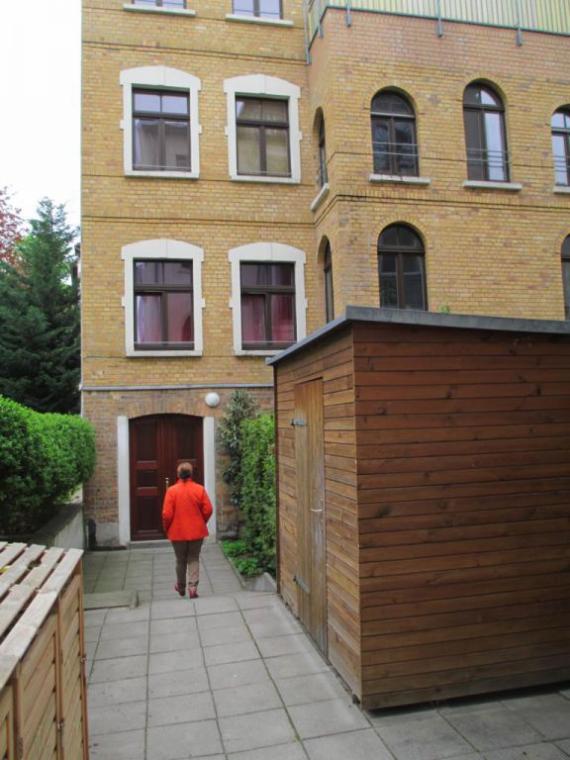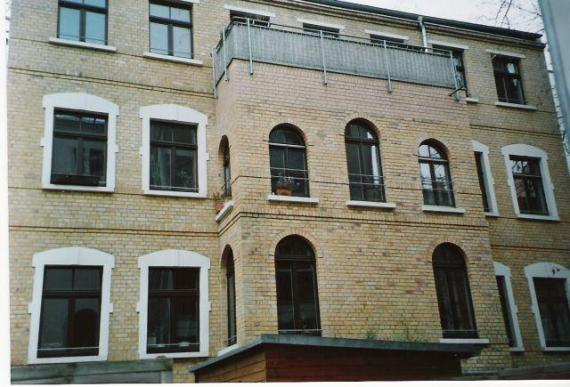Färberstraße 11
Saxony
04105 Leipzig
Germany
In May 1915 Louise Ariowitsch acquired the property Färberstraße 11, which consisted of a residential building on the street side and a building on the rear side. The rear building was converted into a synagogue (Beth Yehuda) with rooms for classes and for use by religious associations. A two-story prayer hall with a gallery was built. As a prayer and teaching house, it was intended to keep alive the memory of her late husband.
From 1936, Peisech Mendzigursky worked as a cantor in the Beth Jehuda synagogue. Peisech Mendzigursky was born on April 9, 1898 in Oswiecim (Auschwitz). When he was five years old, his parents fled with the family to Leipzig. Peisech Mendzigursky worked in Leipzig as a furrier and sold cutlery and non-kosher wines. He worked in the Beth-Jehuda synagogue until the November pogroms of 1938. On November 10, 1938, the interior of the Beth Jehuda Synagogue was destroyed and subsequently closed by the Gestapo. Peisech Mendzigursky was arrested and taken to Buchenwald. After his release, he and his two daughters Feige and Malke were able to flee to England, where he was immediately interned in Kitchener Camp and later a second time on the Isle of Man. Peisech's wife Frieda, their youngest daughter Etti Lea and his father Meier Feiwel Mendzigursky were deported and murdered. Peisech died on April 27, 1962 in Salford, Manchester.
In 1946, the first Seder celebration of the Jüdische Gemeinde Leipzig after World War II took place in the Beth Jehuda Synagogue, but the premises were no longer used as a synagogue. In the years that followed, the building was temporarily used as a factory. Remains of the old mikvah were discovered in 1993, but they also disappeared with the subsequent renovation.
The house of the former Beth-Jehuda synagogue still exists and is now used as a residential building.


Add new comment